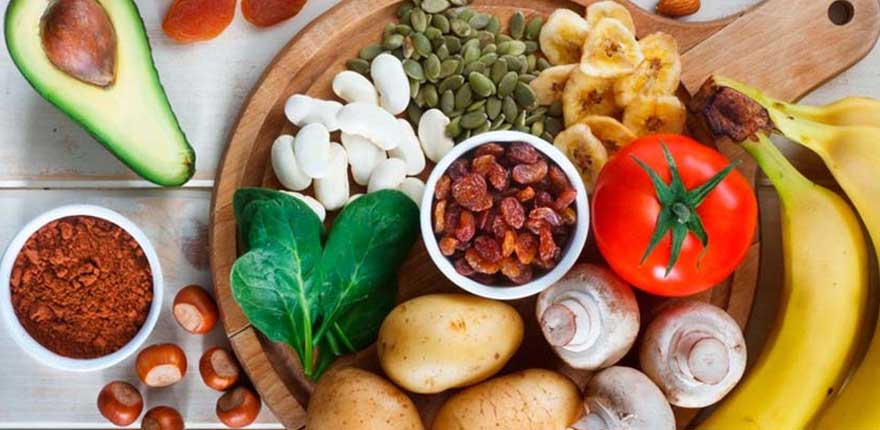Ugh, my tummy hurts! How many times have we heard this complaint? No, we are not talking about kids, this is a commonly heard phrase with young people too!
Deep down we know that gut health is integral to our overall well-being.
But how many of us take any action?
The truth is that we don't feel inspired.
One can’t help but marvel at those who persistently work towards achieving their healthy-gut goal.
How do you reach there?
How do you instill the habit of consuming a diet for a healthy gut?
The best nutritionists in India regularly emphasise on the importance of a good gut. They offer customised diets based on your palate and dietary needs.
Let’s explore together what we should be eating for a healthy gut?
Before that let us quickly understand what is gut and some common signs of gut problems.
What is gut in our body?

Gut is the name of a group of organs that include the mouth, esophagus, stomach, pancreas, liver, gallbladder, small intestine, colon, and rectum.In short, your gastrointestinal system or digestive system is called gut.
A healthy gut not only ensures optimal digestion but many other critical health functions. The gut constitutes one of the central disease-fighting systems of your body. It is therefore important to take care of your gut.
Sadly, many aspects of urban life adversely affect the health of the gut. Some such factors are high levels of stress, erratic sleep habits, consuming high-sugar and processed foods, and intake of antibiotics.
There are many symptoms through which an unhealthy gut might express itself. Let's look into some of the most common ones:
Symptoms of Gut problems

- Constant stomach upset- An unhealthy gut manifests itself in stomach disorders like bloating, gas, diarrhea, constipation, and heartburn. An unhealthy gut is unable to process food well. This leads to improper elimination of waste which directly translates to an overall feeling of discomfort.
- Erratic sleep patterns and fatigue- Sleep disturbances like poor sleep or insomnia can be caused by an unhealthy gut. This leads to chronic fatigue. Our gut produces the majority of the body’s serotonin, our mood and sleep hormone. Any damage to the gut can cause a serotonin-imbalance and hinder your ability to have a sound sleep.
- Weight changes- Our body’s ability to regulate blood sugar, absorb nutrients, and store fat gets impaired by an unhealthy gut. Therefore, an imbalanced gut may cause an unexplained weight gain or loss. Small intestinal bacterial overgrowth (SIBO) may lead to weight loss while insulin resistance may cause weight gain. A decreased nutrient absorption may also increase an urge to overeat thus leading to weight gain.
- Autoimmune disorders- The significance of gut on the immune system is still under research. An impaired gut is believed to modify functioning of the immune system and increase systemic inflammation. This is a leading cause of autoimmune disorders, where our immune system mistakenly attacks our own body.
- Intolerance to foods- Some people are intolerant to certain foods. It is believed that food intolerances are caused by the presence of poor quality of gut bacteria. This causes difficulty in digesting the foods that trigger this intolerance. This leads to symptoms such as gas, bloating, abdominal pain, diarrhea, and nausea.
- Irritation of skin- A damaged gut can cause skin conditions like eczema. Poor diet or allergies of certain foods can be caused by inflammation in the gut. This may cause leakage of certain proteins into the body, which can cause skin irritation.
15 foods for fine gut health

We know that our diet and gut health are closely interlinked. In this light the most obvious question that pops up in our minds is what is a good gut diet? According to nutritionists, fibrous foods, fermented foods, and collagen-rich foods constitute the best diet for gut health.
In the following section, we have arranged 15 best foods for your stomach (though not in a specific order)-
1. Legumes- Most of us avoid legumes for fear of having gas. Did you know that this actually hints something good. When legumes move down our digestive tract and reach the large intestine (colon), they are not broken but still intact. Gut bacteria present in colon feed on these legumes. This whole process is fermentation and gas is a byproduct of this process. No doubt, it is a bit embarrassing, but every dark cloud has a silver lining. It means that your gut bacteria are working best to their capacity.
Examples are chickpeas, white beans, green beans, snow peas, soybeans, and lentils. These can be savored in boiled form or stir-fried recipes. Lentils make for a lip-smacking soup recipe.
2. Beans- Beans work on exactly the same principle as legumes. So include black beans, white beans, and kidney beans as a part of your diet. Beans are so handy, pick any type, make a simple bean salad, sprout them, or top black/kidney beans on yummy tacos.
3. Peas- Fibrous foods boost the growth of gut bacteria which in turn keep your system in balance. This means, the more the servings of fruit and vegetables in your diet, the better. Peas are good constituents for a gut healthy diet as they contain high amounts of soluble and insoluble fibre. You can include peas to rice dishes, stir-fried vegetables, soups as well as salads.
4. Oats- Oats are a great source of prebiotic (probiotic booster) fiber. This fibre nourishes and promotes the survival of healthy gut bacteria. Oats are a long time favorite meal for breakfast. It is eaten as porridges, is an active ingredient in muesli, or can be added to smoothies.
5. Bananas- An apple a day keeps the doctor away, we all have grown up listening to this one. If I were to replace the apple with another fruit, it would be a banana hands down! One of the best foods for your stomach, bananas are a healthy gut bacteria diet. Bananas are handy, contain healthy minerals, and have the kind of fibre that gut-friendly bacteria favor.
6. Berries- Berries are a rich source of polyphenols, a type of plant based chemical. Gut bacteria thrive on polyphenols and produce substances that are favorable for health. Polyphenols are also found in tea, artichokes, apples, red onions, and other fruits and vegetables. Include berries in breakfast, or in a pre-lunch snack. They can be eaten raw or blended to make smoothies.
7. Asparagus- Asparagus is a wonderful food. Known to be a powerful gut-prebiotic, it is known to protect against certain types of cancers. It has excellent antioxidant properties that fight back free radicals and inflammatory compounds. Boil it, Roast it in olive oil, add it to pasta or an omelette, or simply skin it off and add to your salad.
8. Yogurt- Yoghurt is one of the best foods that contain good bacteria, called probiotics. It is ideal to incorporate a sugar-free/low-sugar, full-fat version, topped-up with seasonal fruit, into your breakfast or before-lunch snack. It is best to add your own fruit-topping.
Yoghurt drinks are so prepared that they contain good numbers of gut-friendly bacteria, much more than one can get in a normal yoghurt. However, be mindful to check these drinks for their sugar content before consuming.
9. Kefir- Lately, this yoghurt drink made from fermented milk has become hugely popular. It is a rich source of the gut-friendly bacteria (probiotics). Kefir can be added to soups and smoothies. It also makes for an excellent addition to salad dressing (kefir, lime juice, and seasoning). Kefir ice-creams with low-sugar or no added sugar can also be relished as an evening snack.
10. Miso- Miso contains a variety of components that help flourish healthy bacteria and enzymes in our system. It is derived from barley/rice and fermented soya beans. Miso is an excellent choice if you are avoiding dairy products for some reason. It can be a savoury addition to dressings, dips, and soups. Miso can also be used to marinate salmon or tofu. Japanese cooking is incomplete without this wonder food. Miso works very well for people seeking a weight & muscle gain plan.
There is still some research going on to establish the good effects of Miso on gut health. But in those regions where Miso is a staple diet source, the general population enjoys a great gut health and bowel comfort.
11. Almonds- Remember our moms reminding us for that daily dose of almonds! Gobbling up a handful of almonds is the best way to combat those hunger pangs because they are fibrous, have good probiotic properties, and packed with polyphenols and fatty acids.
12. Garlic and Onion- Garlic and onions are prebiotics. They have amazing ingredients that allow the gut bacteria to flourish better thus improving the overall gut function. They have excellent antifungal properties that check the growth of “bad” gut bacteria. They help to maintain the yeast-balance in the gut. Garlic and onions can be used in stir-fries, gravy based dishes, or soups.
13. Ginger- Ginger is a well known digestive stimulant. Fresh ginger aids the digestive system in moving food through the gut. Ginger is an excellent addition to stir-fries, stews, soups, or smoothies. Add freshly grated ginger to milk and water to make a refreshing ginger tea.
14. Salmon- Salmon with its collagen-boosting properties is a great source of omega-3 fatty acids. People who have bowel disorders such as food intolerances, inflammatory bowel disease, and other digestive diseases, often suffer from inflammation in the gut. Omega-3 Fatty acids help reduce inflammation in your body. Steaming or slow-roasting salmon and topping it with mild herbs and spices is the best way of relishing the oily fish.
15. Bone broth- Bone broth, especially chicken contains amino acids like glutamine and glycine. These amino acids help in proper functioning of your gut leading to an improved digestion and healthy immune system.
NOTE: Alter your diet under the consultation of a nutritionist. Any sudden changes in your diet can cause bowel discomfort and related symptoms.
What are the worst foods for your gut?
- Processed food- Processed foods have high amounts of additives, added sugars, salt, and preservatives. Your gut bacteria thrives on fibers and polyphenols that are found in colorful vegetables, fruits, and whole grains.
- Red meat- According to studies, Carnitine found in red meat, combines with gut bacteria to produce trimethylamine-N-oxide (TMAO), which is known to cause a buildup of plaque in the arteries. This means that heart disease may be linked to how gut bacteria interact with red meat. For a diet for healthy gut, it is recommended to eat red meat in moderation,
- Artificial Sweeteners- Aspartame, saccharin and sucralose, are the Artificial Sweeteners With zero calories and no sugar. They interact with bacteria in the gut, alternating its composition, which can lead to conditions like glucose intolerance. Check the labels of foods and drinks for aspartame, saccharin, and sucralose. Avoid or limit the intake of artificial sweeteners if you care for the health of your gut.
- Alcohol- Too much alcohol alters the intestinal microbiome. For someone who enjoys drinking, it is recommended to do so occasionally, which means two drinks per day for men and one for women.
How can I clean my gut naturally?

- Eat slowly- Thoroughly chewing your food has great benefits. It promotes digestion and aids in better absorption of nutrients. This helps you ease digestive distress and manage a healthy gut.
- Get enough sleep- Having sound and sufficient sleep has a wonderful impact on your health, including the health of your gut. Get into the habit of enjoying 7–8 hours of peaceful sleep every night.
- Stay hydrated- Water has great benefits and a beneficial impact on the intestines. It helps balance good bacteria in your gut. Drinking water is a simple yet effective way for maintaining a healthy gut.
- Saltwater- Studies have proved that salt water flush combined with some yoga exercises can cleanse your gut. This works wonders for someone suffering from constipation and irregular bowels. On an empty stomach, in the morning, drink lukewarm water mixed with 2 teaspoons of sea salt or Himalayan salt. Drink this water quickly. Within a few minutes, you will feel an urge to use the bathroom. Repeat the same procedure in the evening. Ensure that you are home for sometime as you may need to use the bathroom a couple of times.
- High-fiber foods- As discussed earlier, high-fiber foods are a great diet for a healthy gut. Eating fiber rich foods regulates constipation and erratic bowels, while boosting helpful bacteria as a prebiotic. Include plenty of fibrous foods such as whole foods and plant foods like grains, seeds, nuts, fruits, and vegetables in your diet.
- Resistant Starches- Resistant Starches improve gut health by boosting gut microflora. Including resistant starches in your diet along with fiber is excellent for cleansing the gut. These are found in plant based foods like green bananas, potatoes, legumes, rice, and grains. The flip side is that resistant starches are rich in carbohydrates. People seeking low-carb diets can choose options such as rice and waxy potatoes.
- Juices and smoothies - Juices and smoothies are excellent cleansers for your gut. They hold water to help you stay hydrated and contain good fibers and nutrients that aid in digestion. Vitamin C, a great gut cleanser is found in many fruits and vegetables used in preparing juice blends. Most popular juices are lemon juice, apple juice, and vegetable juices. Smoothies contain a lot more fiber than juices. Nutritionists recommend including more smoothies and juices in your diet, such as one helping of juice or smoothie daily.
- Herbal teas- Some herbal teas boost your digestive health. Psyllium husk, marshmallow root, aloe vera, and slippery elm are some laxative herbs that may ease constipation. Always consult your doctor before including these herbs in your diet. Also follow instructions carefully and use them mildly; otherwise, they can cause side effects. Drink a cup of herbal tea (one of these) 2 to 3 times a day. For laxative herbal teas, take only one cup tea per day.
- Probiotics- Probiotics are one of the best sources for introducing good bacteria to the gut. Include lots of high probiotic foods like yogurt, kefir, pickles, and other fermented foods in your diet. These foods check inflammation and improve regularity- two important elements of gut health. Apple cider vinegar is also a probiotic. It contains acids and enzymes and acids are believed to suppress bad bacteria. Currently, this is still under research. You can also take probiotic supplements but strictly under your doctor’s prescription.
What is the best drink to flush your system?
There are a lot of drinks that detox your system. Today we bring to fore the most common yet refreshing one that you can easily concoct at your home.
Orange-Carrot-Ginger Detox Drink
Oranges are storehouses of vitamin C and antioxidants. Carrots are powerhouses of beta-carotene and fibres that aid in digestion. Ginger is loaded with anti-inflammatory properties. It is a tried and tested remedy for bloating, indigestion, and stomach cramps.
SIBO or Small Intestinal Bacterial Overgrowth is a chronic condition in which bacterial overgrowth occurs in the small intestine. Bacteria enter the small intestine in huge numbers and cause havoc. It is believed that most people suffering from Irritable Bowel Syndrome (IBS) experience their symptoms because of SIBO.
Prebiotics are a class of fibers that the human body is unable to digest. They are the food for probiotics, such as bacteria and yeast. They support the growth of healthy bacteria in the gut.
Probiotics are live bacteria that are found in yogurt and many other fermented foods. Probiotic bacteria are good for gut health and compete with more than 1000 bacteria already present in the gut. The important thing is that they must remain alive to be active.
Final Words
The importance of a healthy gut cannot be ignored. “Gut is not only the seat of your health. It is the seat of your intuition." A healthy gut directly translates to a robust immune system which in turn leads to healthy heart, brain, and effective digestion. If you are seeking a Balanced Diet Plan For Ideal Weight & Gut Health, visit My 22 BMI, your trusted health platform.
As they say, always trust your gut (feeling), the best decisions are made when you are gut-healthy!

